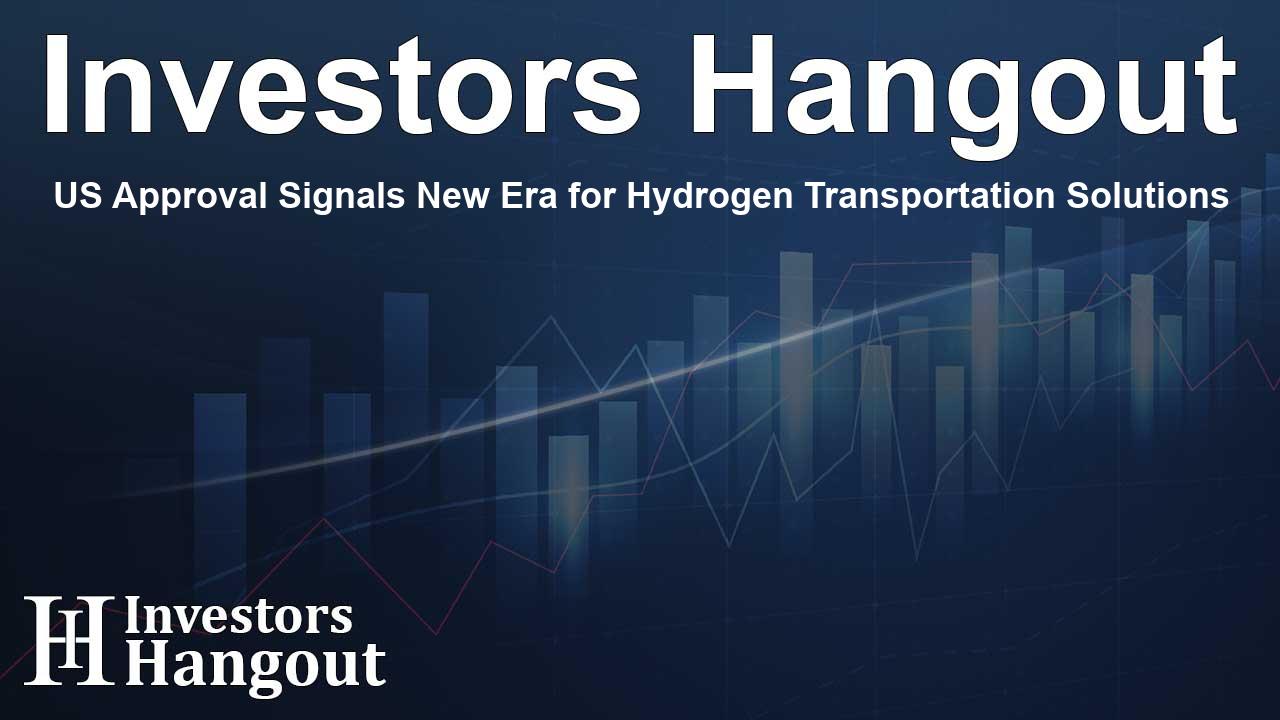US Approval Signals New Era for Hydrogen Transportation Solutions

Key Milestone in Hydrogen Transport Technology
Celly H2, LLC has recently shared exciting news about UMOE Advanced Composites (UAC). They have achieved a significant milestone: gaining approval from the U.S. Department of Transportation (DOT) for their Type IV fiberglass-wrapped hydrogen storage trailers. This marks a major step forward in the fast-evolving landscape of hydrogen transport in the United States.
Innovative Design and Efficiency
The approved trailers are designed with state-of-the-art Multi-Element Gas Container (MEGC) technology, featuring proprietary Type IV glass fiber composite vessels. These innovative vessels are set to revolutionize high-pressure hydrogen storage and transport, addressing the urgent need for effective hydrogen distribution in the U.S. market.
Benefits of UAC's Type IV Storage Vessels
UAC’s Type IV vessels come packed with advantages that stand out in the hydrogen transport sector.
Cost Efficiency
One of the key offerings is a lower total cost of ownership. These vessels allow for a remarkable 40% reduction in capital expenditure compared to traditional carbon fiber options, making them an economically attractive solution. Operational expenses also see a significant decrease compared to the more conventional Type I steel vessels.
Weight Savings
Another impressive benefit is the lightweight design of the fiberglass composite structure. Compared to Type I steel, these vessels deliver about 70% weight savings, which translates to higher payload capacities and reduced fuel consumption—key factors for greater transport efficiency.
Environmental Impact
UMOE Advanced Composites is also committed to sustainability. Their vessels reduce energy consumption by over 50% when stacked against carbon fiber and steel alternatives, contributing positively to the overall carbon footprint of hydrogen transport.
Safety Features
Safety is paramount, and these vessels are designed with it in mind. They meet industry-leading safety standards with advanced resistance to corrosion, fatigue, and environmental stress. Extensive testing under extreme conditions has validated their toughness and reliability.
Future of Hydrogen Infrastructure in the U.S.
Shawn Laughlin, President of Celly H2, LLC, emphasized the importance of this DOT approval. He stated, "This DOT approval is a pivotal step toward accelerating hydrogen infrastructure in the U.S. UAC's proven track record in Europe and Asia, combined with this regulatory milestone, equips U.S. customers with a highly efficient, scalable solution for clean energy distribution." With UAC’s global orders primarily supporting hydrogen markets in over 32 countries, this entry into the U.S. market represents a fundamental expansion for both UMOE Advanced Composites and Celly H2, LLC. The newly approved 350 bar MEGC trailers are positioned to support decarbonization initiatives across a spectrum of applications, including mobility, industrial processes, and energy storage.
About Celly H2, LLC
Celly H2, LLC stands as the U.S. agent for UMOE Advanced Composites, dedicated to advancing midstream hydrogen infrastructure that includes storage, transport, and refueling solutions. Their efforts are aligned with the country's ambitious decarbonization and energy transition goals.
About UMOE Advanced Composites (UAC)
Founded in 2006, UMOE Advanced Composites is based in Norway and specializes in manufacturing advanced composite pressure vessels for hydrogen, biogas, and CNG. With operations in over 32 countries, UAC provides safe, lightweight, and cost-effective storage solutions to clients worldwide.
Media Contact
For media inquiries, please contact Andrew Mahon, VP of Strategic Business Development, at 281.299.4180.
Frequently Asked Questions
What is the significance of DOT approval?
The DOT approval allows UMOE's Type IV hydrogen storage trailers to be used in the U.S. market, facilitating hydrogen transport and infrastructure development.
What are the advantages of UAC's Type IV vessels?
They offer cost efficiency, lightweight design, reduced environmental impact, and enhanced safety compared to traditional options.
How are these vessels different from other types?
UMOE’s Type IV vessels utilize fiberglass composites, which result in significant weight savings and operational cost reductions compared to steel or carbon fiber vessels.
Who can benefit from these new trailers?
These trailers serve various sectors including hydrogen distribution networks, energy storage facilities, and industrial applications that require high-pressure hydrogen transport.
What does this mean for the hydrogen market in the U.S.?
This development supports the growth and efficiency of hydrogen transport, aiding the overall decarbonization efforts across multiple industries in the U.S.
About The Author
Contact Hannah Lewis privately here. Or send an email with ATTN: Hannah Lewis as the subject to contact@investorshangout.com.
About Investors Hangout
Investors Hangout is a leading online stock forum for financial discussion and learning, offering a wide range of free tools and resources. It draws in traders of all levels, who exchange market knowledge, investigate trading tactics, and keep an eye on industry developments in real time. Featuring financial articles, stock message boards, quotes, charts, company profiles, and live news updates. Through cooperative learning and a wealth of informational resources, it helps users from novices creating their first portfolios to experts honing their techniques. Join Investors Hangout today: https://investorshangout.com/
The content of this article is based on factual, publicly available information and does not represent legal, financial, or investment advice. Investors Hangout does not offer financial advice, and the author is not a licensed financial advisor. Consult a qualified advisor before making any financial or investment decisions based on this article. This article should not be considered advice to purchase, sell, or hold any securities or other investments. If any of the material provided here is inaccurate, please contact us for corrections.
